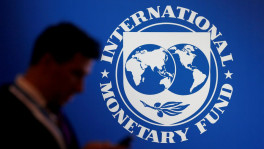Excessive salt intake to cause 1.6 million deaths this year
A new study published in the New England Journal of Medicine highlights the potential of low-sodium salts to reduce sodium consumption and save lives

This year, excessive salt intake will cause an estimated 1.6 million deaths around the world.
Low and middle-income countries will have four out of five of these deaths and half of the deaths will be among people under 70, reports CNN.
These deaths from excessive salt intake are preventable. In most countries, daily salt intake is far above the 5-gram daily upper limit recommended by the World Health Organization; the global average, 10.1 grams of salt, is double this amount.
Eating less salt can save millions of lives. But reducing dietary salt intake has been difficult. Food preferences tend to change slowly, industry has no incentive to decrease sodium content of food—and considerable incentives to maintain or increase it—and there aren't many alternatives to salt that provide the same taste.
A new study published in the New England Journal of Medicine highlights the potential of low-sodium salts to reduce sodium consumption and save lives. Low-sodium salts replace some of the sodium with potassium, which has similar properties. These substitutes contain about a quarter less sodium, but taste similar to regular salt and can be used the same way in cooking.
Potassium salts provide a double benefit. Reducing sodium reduces blood pressure and saves lives. Increasing potassium, which most people in most countries, including the United States, don't consume enough of, further reduces blood pressure and improves heart health.
Findings from this groundbreaking study, conducted in China by the George Institute for Global Health, show that low-sodium salt substitutes save lives and prevent heart attacks and strokes. Low-sodium salt decreased the risk of death by 12%, the risk of stroke by 14%, and total cardiovascular events (strokes and heart attacks combined) by 13%.
To put that into perspective, a 13% reduction in cardiovascular events in the United States would prevent more than 200,000 heart attacks and strokes per year, and globally, millions of heart attacks and strokes.
The study—one largest and longest-running sodium replacement trials ever—was conducted over five years and included 21,000 people with either a history of stroke or poorly controlled blood pressure (that is, those at highest risk for heart attack or stroke). It proves that low-sodium salts prevent heart attacks and strokes, and are an acceptable replacement that can be easily adapted to most people's diets. Further, the study found no increased risk of serious adverse events.
The findings from this trial are particularly promising for places—including most low- and middle-income countries—where most sodium intake comes from salt added while cooking or eating in the home. With the right policy incentives, such as taxation and subsidies to ensure that low-sodium salts are no more expensive (and preferably less expensive) than regular salt, it's possible to replace regular salt with low-sodium alternatives. These interventions can be expanded to include packaged and restaurant foods, the source of most excess sodium in higher-income countries.
This new study adds to a growing body of evidence on the life-saving potential of low-sodium salt substitutes. An earlier modeling study of impact in China indicated that, if implemented throughout the country, low-sodium salt substitutes could save 461,000 lives per year. (The recent New England Journal of Medicine study confirmed the accuracy of this model.) Benefit was also demonstrated several years ago by an elegant study conducted in a veterans' retirement home in Taiwan showing that low-sodium salt reduced cardiovascular death and also reduced health care spending, even though veterans in the low-sodium salt group lived longer.
Of course, no intervention is perfect. People on potassium-restricted diets (such as those undergoing kidney dialysis) may need to avoid low-sodium salts. However, the amount of potassium consumed daily from low-sodium salt in a typical diet is similar to that in one or two bananas. At higher levels of potassium content (which generally ranges from 10% to 35% and was 25% in the study just published), some people sense a metallic taste with some foods (particularly soups and sauces). But these challenges can be overcome with clear labeling and adjustment for certain foods and recipes.
Governments should promote low-sodium salts by expanding their availability, reducing cost, and increasing acceptance among consumers, retailers, and producers. Governments should ensure that low-sodium salts are readily available for sale (a recent review found that this is the case in less than a quarter of countries). Governments should also provide subsidies to reduce the cost of low-sodium salt, which now costs more than standard salt, and incentivize manufacturers to incorporate salt substitutes in food production.
Improving awareness of low-sodium salt and educating the public about its benefits will further support these measures. Complementary policies including salt reduction targets for industry (such as the US Food and Drug Administration voluntary targets now pending with the White House) and high-salt warning labels can also help increase the use of low-sodium salts in packaged foods.
Requiring that low-sodium salt be used in preparation of food purchased, served, and sold in public settings (such as universities, hospitals, and government cafeterias) would reduce the sodium content of millions of meals served around the world every day. Governments could also require the use of low-sodium salts in packaged foods and foods prepared by restaurants, food trucks and stalls, and other food sellers.
Increasing low-sodium salt use will also reduce costs of medical treatment and lost productivity from high blood pressure and heart disease. Globally, more than 25,000 deaths per day occur due to high blood pressure, with direct medical costs estimated at $370 billion per year. Costs of hypertension are expected to increase sharply in coming years, because of both rising prevalence and higher health care costs. For every $1 spent on salt reduction efforts, governments can save as much as $19 in averted medical costs and productivity losses.
Low-sodium salt substitutes are a proven path forward to save lives and money. This is a policy solution that costs governments little, is easy to implement, reduces health care costs, and provides a real benefit to economies and people.


 Keep updated, follow The Business Standard's Google news channel
Keep updated, follow The Business Standard's Google news channel
















